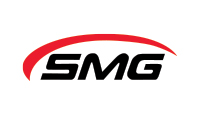We manage energy project development, environmental permitting, remediation and compliance, insustrial hygiene, health & safety, auditing, environmental management, government relations. We solve your problems in all of these areas. We move quickly and dig deeply to reach your goals. We work wherever you are.
How can SMG help you?
SMG POV
On December 18th, the White House’s Council on Environmental Quality (CEQ) issued a revised draft guidance describing how Federal agencies should assess impacts to climate change in their NEPA project reviews. This new guidance supersedes a similar CEQ document released in 2010 that was never finalized. The new document is significant in that it now requires the assessment of land and resource management actions undertaken by agencies such as the Department of the Interior and the US Army Corps of Engineers. The guidance also extends climate change review to Federally connected projects that result in the “destruction of natural GHG (greenhouse gas) sinks such as forests and coastal wetlands.” If finalized, the CEQ’s latest NEPA guidance could affect projects ranging from oil and gas pipelines to commercial land developments with stream and wetland impacts.
You can read the new CEQ guidance here and provide comments within 60 days of December 18th here. If you are interested in how your long-term or future projects could be impacted, contact me at josiahf@smithmanage.com.
FEATURED PROJECT
PROBLEM
A local company engaged in manufacturing imported a small amount of a chemical substance defined under TSCA. Faced with a potential EPA enforcement action with penalties assessed for noncompliance under TSCA of up to $32,500 per day per violation, the company called SMG for help.
SMG'S APPROACH
SMG analyzed the company’s current TSCA procedures and assisted the company in developing a proactive, cost-effective compliance procedure. SMG also facilitated a training program to educate employees about TSCA.
MG worked with the company to develop mechanisms that assured adherence with the policies that were being implemented for compliance. Procedures to promptly correct any potential violations and prevent future violations were also put into place.
RESULTS
SMG was able to show that the company complied with the relevant TSCA regulations and was improving their TSCA policies and procedures to assure that future issues were less likely to occur. The company was not subjected to the proposed penalties and now has mechanisms in place to maintain TSCA compliance.
